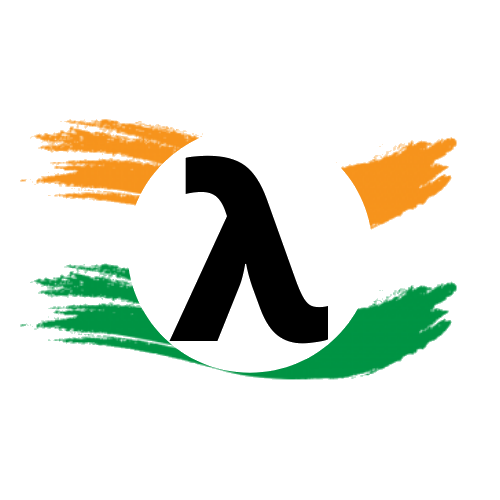
Welcome to our English US (Roman)page
Wλl‑kam tu āwar Eŋgles-h US (Rowman)pλyj
Current Page Website Owner





L@n-g-wajaz en En-dea
A wλb sāyt dλdakλy-tad tu đa d-rem av En-dean yunate wāyl s-tel mλy-n-tλynen et-s rec devarsate av l@n-g-wajaz.
Đa Λklepee s-k-rep-t ez @n āy-dea weđ warl-d-wāyd em-p-lakλys-han-z.
Ef öl đes l@n-g-aj kān-tλn-t ez avλylabal en Λklepee et k@n be rλd bāy @n en-davejawal hu h@z larn-t Λklepee (đow nāt nλsasλrale an-dars-tud). Et öl-sow men-z đ@t wan k@n rāyt wan-s en Λklepee @n-d rλd bāy λv-rewan hu nowz Λklepee.
We ār warken delajan-t-le tu hλl-p đ@t h@pan. Vezat āwar ađar wλbsātλ-s.https://www.ekalipi.com @n-d https://www.ekalipi.org för detλyl-z.
Aman öl đa kan-t-rez đ@t s-t@n-d tu bλnafet f-ram Λklepee, En-dea wel bλnafet đa mows-t. En-dea h@z afes-hal l@n-g-wajaz ec s-powkan bāy mel-yan-z av pepal
(A majörate av đa l@n-g-wajaz h@v mλne ward-z đ@t ār kāman ör @t les-t vλre semalar. Đa sen-t@k-s ez öl-sow vλre semalar). Đes devarsate ez wan-darfal.
Wat ez nāt sow wan-darfal ez đλr ār n-n s-k-rep-t-s en wec đez l@n-g-wajaz ār retan.
@z a rezal-t et ez vλre defakal-t för đa @varej En-dean tu du sem-pal ŧ-hen-z lāyk rλd s-t-ret sāyn-z en ađar pār-t-s av đa kan-t-re ör kam-yunakλyt weđ s-pekarz av ađar En-dean l@n-g-wajaz.
An-för-canat-le đa majörate av pepal asum đ@t a l@n-g-waj @n-d et-s s-k-rep-t ār enλk-s-t-rekab-le tāyd tagλđar. Et ez āwar kan-tλn-s-han đ@t đes ez nāt đa kλys.
Even en En-dea, l@n-g-wajaz lāyk kokāлee, sen-d-he @n-d K@s-h-mere yus mal-tapal
s-k-rep-t-s. Sam-tāym-z l@n-g-wajaz h@v öl-sow cλyn-j-d s-k-rep-t-s. Marāte yuz-d tu be retan en “Mowde” s-k-rep-t. Et ez nāw retan en “dλwanāgaree s-k-rep-t.
Et ez āwar kan-tλn-s-han đ@t đa l@n-g-waj p-rāb-lam-z đ@t öl En-dean-z ār famel-yar weđ, h@v vλre letal tu weđ đa l@n-g-wajaz đλm-sλl-v-z. En-s-tλd đλy h@v a lāt mör tu du weđ đa mal-tap-lesete av l@n-g-waj tāyd s-k-rep-t-s đ@t ār en λg-zes-tan-s.
Āwar sem-pal p-rāpazes-han “Öl En-dean l@n-g-wajaz (@n-d En-g-les-h) be retan yuzen āwar sen-gal Λklepee s-k-rep-t“.
Languages in India
A web site dedicated to the dream of Indian unity while still maintaining its rich diversity of languages.
The Ekalipi script is an idea with worldwide implications.
If all this language content is available in Ekalipi it can be read by an individual who has learnt Ekalipi (though not necessarily understood). It also means that one can write once in Ekalipi and read by everyone who knows Ekalipi.
We are working diligently to help that happen. Visit our other websites https://www.ekalipi.com and https://www.ekalipi.org for details.
Among all the countries that stand to benefit from Ekalipi, India will benefit the most. India has 22 official languages each spoken by millions of people (A majority of the languages have many words that are common or at least very similar. The syntax is also very similar). This diversity is wonderful.
What is not so wonderful is there are nn scripts in which these languages are written.
As a result it is very difficult for the average Indian to do simple things like read street signs in other parts of the country or communicate with speakers of other Indian languages.
Unfortunately the majority of people assume that a language and its script are inextricably tied together. It is our contention that this is not the case.
Even in India, languages like Kokani, Sindhi and Kashmiri use multiple scripts. Sometimes languages have also changed scripts. Marathi used to be written in “Modi” script. It is now written in “Devanagari” script.
It is our contention that the language problems that all Indians are familiar with, have very little to with the languages themselves. Instead they have a lot more to do with the multiplicity of language tied scripts that are in existence.
Our simple proposition “All Indian languages (and English) be written using our single Ekalipi script“.